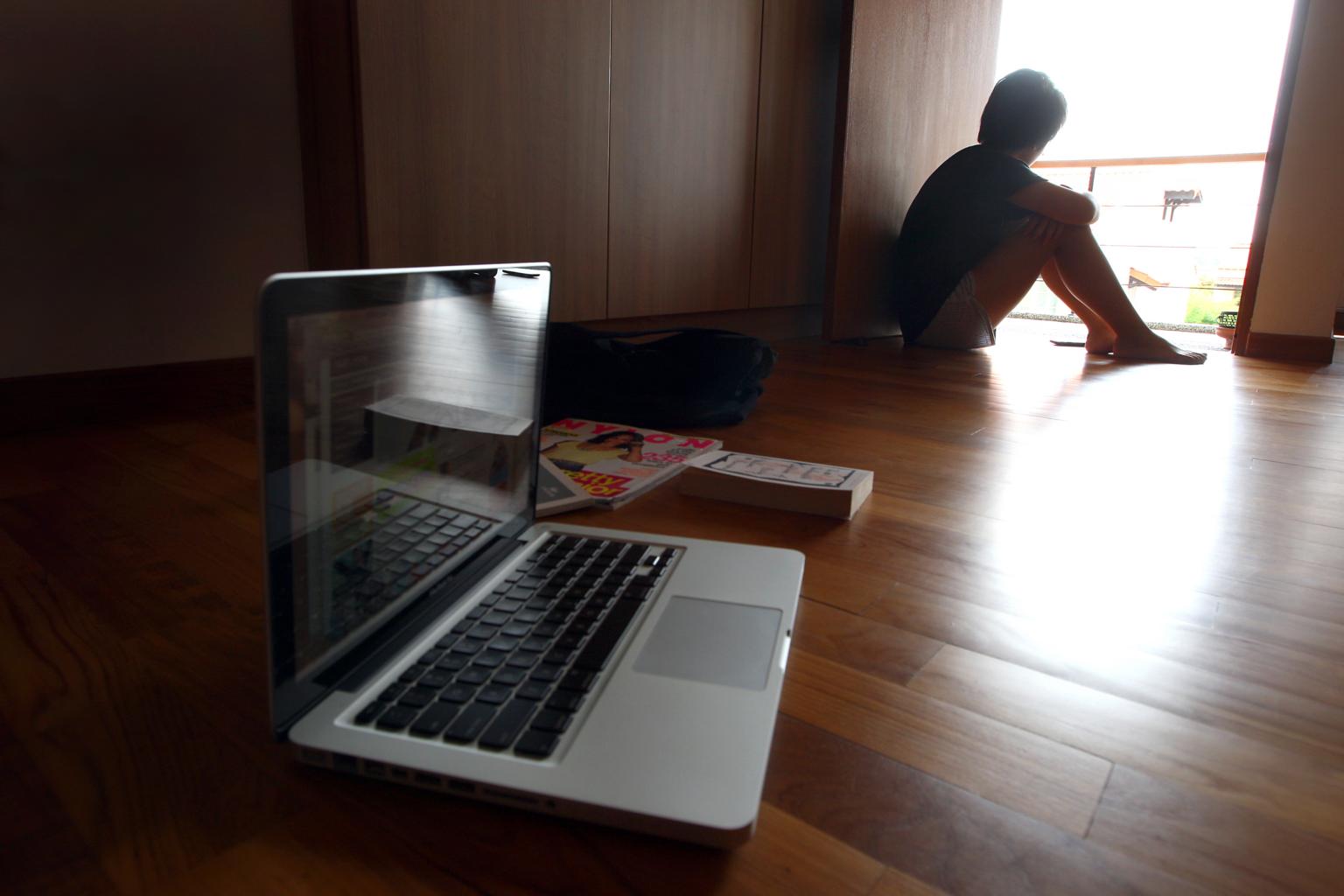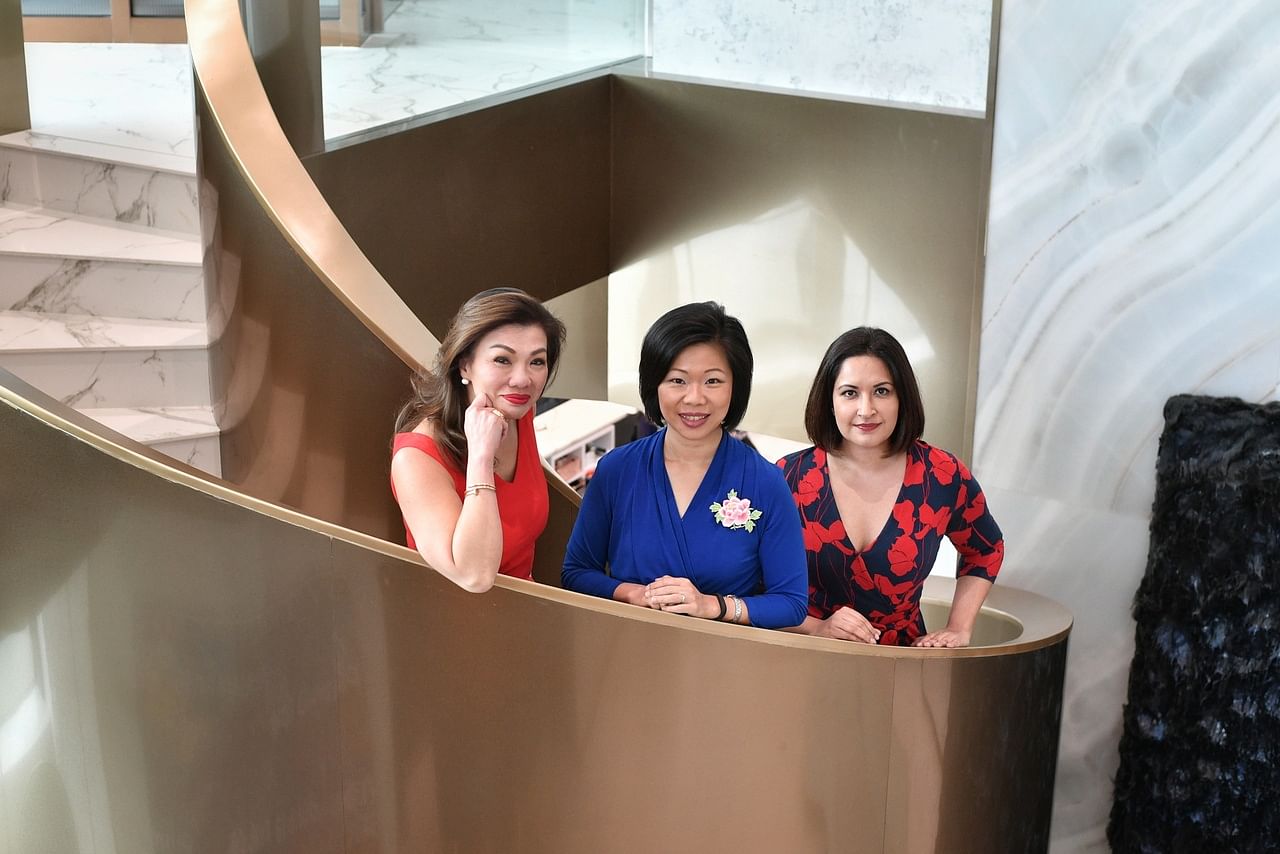Girls and women facing online attacks and harassment can get help at new centre
Sign up now: Get ST's newsletters delivered to your inbox

The support will be available by the end of the year and is started by a new non-profit organisation, SG Her Empowerment.
PHOTO: ST FILE
Follow topic:
SINGAPORE - Girls and women who face online harassment and attacks can soon get help at a new resource centre which will offer a helpline and counselling and legal services.
The support will be available by the end of the year and is initiated by a new non-profit organisation, SG Her Empowerment, or SHE.
The centre, known as SheCares@SCWO, will be located on Singapore Council of Women’s Organisations’ (SCWO) premises in Waterloo Street.
For a start, it will have two full-time trained counsellors, and a pool of about 100 volunteer lawyers from the Law Society Pro Bono Services will provide free legal support.
About $1 million has been raised for the centre's operations.
SHE is also working on simplifying the reporting process for harmful or offensive online content or sexual harassment.
Currently, the processes and standards vary across social media platforms, said veteran lawyer Stefanie Yuen Thio, the founder and chairman of SHE.
SHE aims to come up with a single set of guidelines that its volunteer lawyers or other users can refer to, instead of having to trawl through the different platforms' websites for information.
The new charity was set up by Ms Yuen Thio, who is joint managing director at TSMP Law Corporation, to provide greater support for women and girls who face issues such as harassment.
Ms Simran Toor, a veteran lawyer, left WongPartnership in May to be SHE's chief executive.
Ms Sim Ann, Senior Minister of State for Foreign Affairs and National Development, and Ms Low Yen Ling, Minister of State for Trade and Industry, are special advisers to the board of SHE.
Speaking to The Straits Times last Friday ahead of the launch, Ms Sim said the new charity will carry on some of the work that the Sunlight Alliance for Action was exploring in the areas of online harm targeted at females.
The alliance, which was started by the Ministry of Communications and Information in July 2021, ended its tenure in July this year.
It was set up to tackle online harassment faced by women and girls and did so through public education, research, partnerships and support for victims.
Examples of online harm include the non-consensual publication of personal details and images online; unwelcome one-to-one interactions; sexual harassment and online grooming.
Ms Sim said: "We started off wanting to shine the light on the darker corners of the Internet, where women and girls don't feel so safe. Now we're actually building a lighthouse... We'll be looking at areas that are connected with online harm.
"Actually it can be very broad because it has to do with how women and girls are seen, the issue of objectification, the issue of stereotyping and that also feeds into the issue of self perception and self-esteem."
SHE's board members include United Women Singapore president Georgette Tan, Dr Han Ei Chew, senior research fellow at IPS Social Lab at the Institute of Policy Studies and Ms Junie Foo, president of SCWO.
On simplifying the reporting process, Ms Yuen Thio said: "It's not so much to get legal redress or compensation. The important thing is to get such content removed very quickly, because every moment it stays online is a trauma relived."
"We will put these reporting processes, including the in-app reporting requirements, on our website... We hope that our website will then be the first port of call when users need help," she added.
SHE is also in discussions with the police to improve victims' reporting experiences.
Ms Yuen Thio added that SHE will work closely with various social media platforms to identify new trends in online harm, discuss how best to raise public awareness, and get updates on users' reporting trends.
Beyond the dangers in cyberspace, the charity is also in talks with institutes of higher learning on possible areas of research that would shed light on ways to improve the lives of women.
These include issues raised by the White Paper on Singapore Women's Development, which was released in March, such as caregiving and women in leadership. Other potential research areas are gender biases, issues that girls from underprivileged families face and workplace harassment.
"I don't have the answers to these issues... What we really want to do is to talk to as many people as we can, get good data and advocate policies that we think will make a difference," said Ms Yuen Thio.
Part of SHE's work will involve engaging youth to find out their attitudes and concerns, she added.
Ms Yuen Thio said that a global study of 30 countries released in March by market research agency Ipsos, together with the Global Institute for Women's Leadership, found that 16 per cent of Gen Zs - generally defined as those born between 1997 and 2012 - in Singapore felt that sending sexually explicit images, even if unrequested, is acceptable.

In comparison, 9 per cent of millennials - those born between 1981 and 1996 - and 10 per cent of GenXers - born 1965 to 1980 - felt the same way.
"Gen Zs and millennials are not very different in terms of age, but their sensitivity to what is offensive is quite different... It means people are getting increasingly desensitised to offensive material," said Ms Yuen Thio.
Ms Sim added: "There's probably still time for us to do something about it because underlying it is this idea of objectifying and exploiting women.
"And I think that was the thing that so many generations of women have worked so hard to fight against, so we can't lose that progress."

